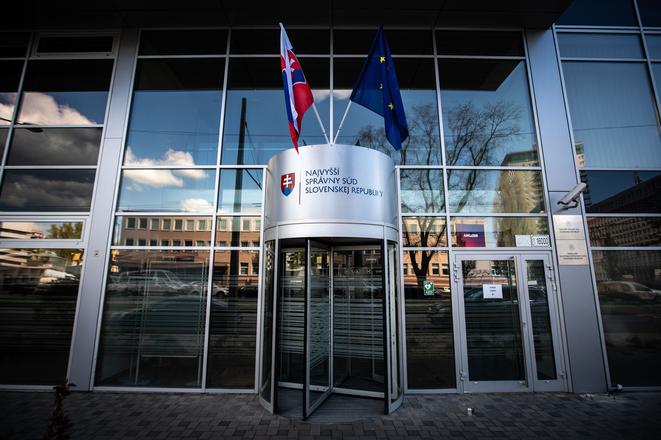The Constitutional Court ruled on December 13 that Slovakia cannot reject a foreigner’s residence application solely on the grounds of a negative opinion from the Slovak Information Service (SIS) and the Military Intelligence (VS).
When the foreigner applies for permanent or temporary residence, their application is also reviewed by Slovak intelligence services.
In February 2022, the Slovak Administrative Court turned to the Constitutional Court, arguing that several provisions in the Act on the Residence of Foreigners (No. 404/2011) were unconstitutional. The proposal was put forward after the Foreigners’ Police in Banská Bystrica cancelled, in 2020, the five-year permanent residence of a foreigner following the Slovak Information Service’s negative opinion.
The foreigner was granted permanent residence in November 2019.
The police later dismissed the foreigner’s appeal, pointing to the intelligence agency’s decision. The Banská Bystrica Regional Court, however, cancelled the earlier decision of the police due to “lack of reasoning and violation of the right to a fair trial”. The police then filed a complaint with the Supreme Administrative Court.
Elena Berthotyová, president of the Supreme Administrative Court panel that turned to the Constitutional Court in this matter, reasoned that it was constitutionally unacceptable to decide on the residence application by merely relying on the opinions of intelligence agencies. These opinions do not explain to a foreigner why their application has been rejected, she added.
In its proposal, the Supreme Administrative Court acknowledged that the disclosure of all collected information on the background of a foreigner is subject to secrecy for public security reasons. However, the court contended that the police could provide at least some form of explanation. This could be an anonymised version of the decision or the decision with basic information that led to the negative opinion.
The Supreme Administrative Court went on to ask in its proposal whether the state could actually restrict the rights of a foreigner applying for residence in Slovakia, by not providing any explanation as to why their application was rejected in an attempt to protect the country. But the Supreme Administrative Court eventually wrote that the criticised provisions were “clearly disproportionate with regard to the intended purpose”, also citing several rulings issued by the European Court of Human Rights.
“The given jurisprudence emphasises the principle of effective remedy and fair trial and does not grant states the right to renounce these rights even when their security is threatened,” the Supreme Administrative Court said.
Therefore, according to both courts, a foreigner has to be told, at least to a minimum extent, what public security reasons led the intelligence agency to write a negative opinion on a foreigner’s application. In this way, the foreigner will then be able to defend themself from the start as well.
The parliament now has six months to bring the criticised provisions in line with the constitution.




 The Supreme Administrative Court in Bratislava. (source: SME - Jozef Jakubčo)
The Supreme Administrative Court in Bratislava. (source: SME - Jozef Jakubčo)